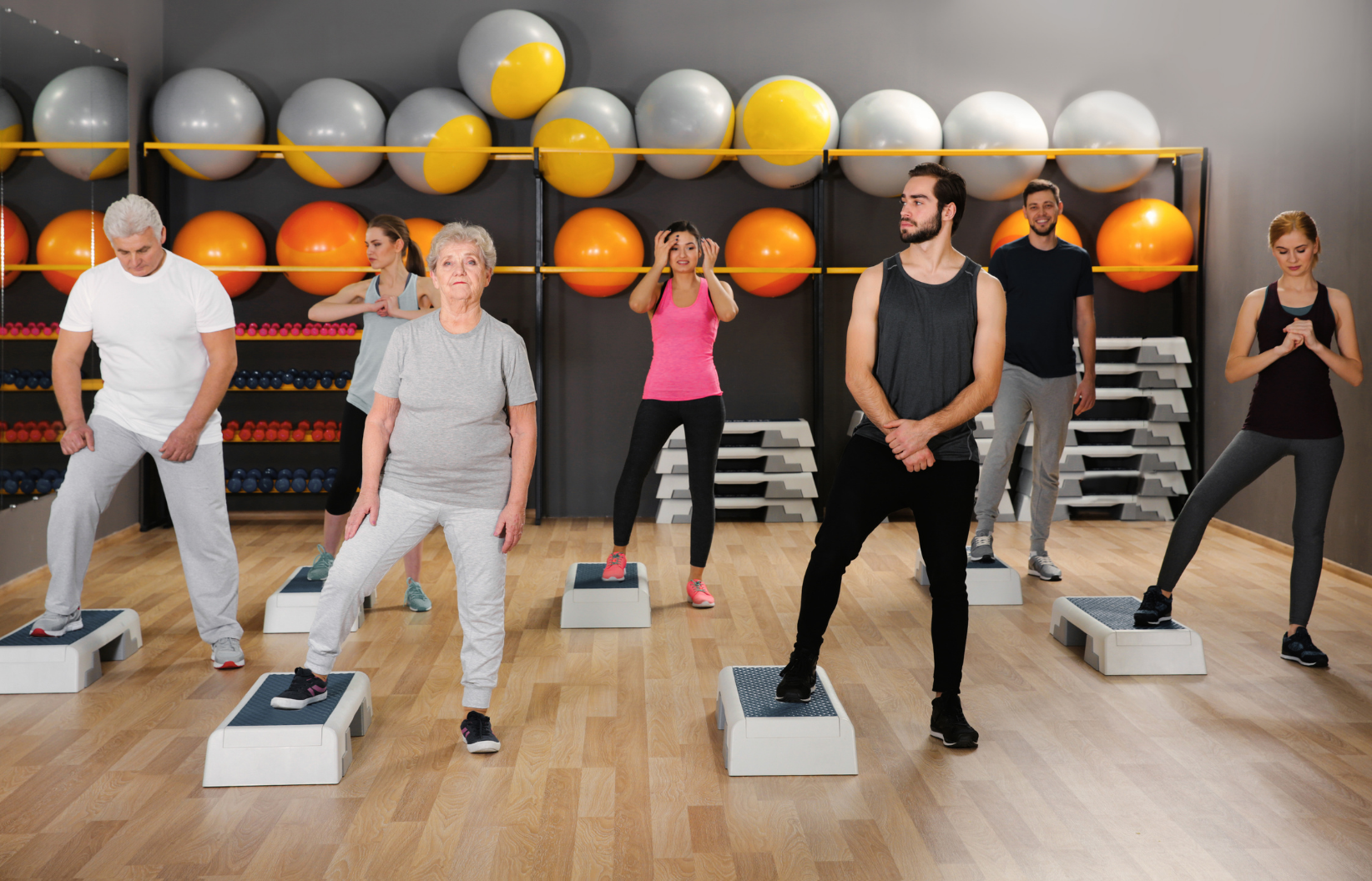Posted by Ralph Panttaja on Nov 3rd 2025
The Benefits of Regular Exercise for Overall Health
Understanding Regular Exercise Regular exercise involves engaging in physical activity consistently, whether it's daily, several times a week, or according to a structured routine. It encompasses various forms of physical activities, including aerobic exercises, strength training, flexibility exercises, and balance exercises. The key to reaping the benefits of exercise is consistency and incorporating a variety of activities to target different aspects of physical health.
The Importance of Physical Activity Physical activity is crucial for maintaining overall health and well-being. It helps in preventing chronic diseases, managing weight, improving mental health, and enhancing the quality of life. Despite its importance, many people struggle to incorporate regular exercise into their daily routines due to various barriers such as time constraints, physical limitations, or lack of motivation. Understanding the wide-ranging benefits of exercise can provide the necessary motivation to make it a regular part of life.
Physical Health Benefits
Weight Management One of the most well-known benefits of regular exercise is its ability to help with weight management. Physical activity burns calories, which is essential for losing excess weight or maintaining a healthy weight. Additionally, regular exercise boosts metabolism, making it easier to manage weight in the long term. Combining exercise with a balanced diet is the most effective way to achieve and sustain a healthy weight.
Improved Cardiovascular Health Regular exercise is vital for maintaining a healthy heart and cardiovascular system. It helps lower blood pressure, improves circulation, and reduces the risk of heart disease. Activities such as running, swimming, cycling, and brisk walking are particularly beneficial for cardiovascular health. By strengthening the heart and improving blood flow, regular exercise reduces the risk of heart attacks, strokes, and other cardiovascular issues.
Enhanced Muscle and Bone Strength Engaging in strength training exercises helps build and maintain muscle mass, which is essential for overall strength and physical function. Weight-bearing exercises, such as walking, running, and resistance training, also help strengthen bones and increase bone density, reducing the risk of osteoporosis and fractures. Strong muscles and bones are crucial for maintaining mobility and independence, especially as we age.

Mental Health Benefits
Reduced Anxiety and Depression Regular exercise has been shown to significantly reduce symptoms of anxiety and depression. Physical activity stimulates the production of endorphins, which are natural mood lifters. Exercise also promotes the release of serotonin, a neurotransmitter that helps regulate mood. Engaging in regular physical activity can provide a natural and effective way to manage and alleviate symptoms of anxiety and depression.
Improved Mood and Mental Clarity Exercise not only helps reduce negative feelings but also enhances positive emotions. Regular physical activity has been linked to improved mood, increased energy levels, and greater mental clarity. Exercise can serve as a form of meditation in motion, helping to clear the mind and reduce stress. The sense of accomplishment from completing a workout can also boost self-esteem and confidence.
Better Sleep Quality Physical activity can improve sleep quality by helping you fall asleep faster and enjoy deeper sleep. Exercise regulates your circadian rhythm, the body’s internal clock, promoting healthy sleep patterns. However, it’s important to time your workouts appropriately, as exercising too close to bedtime can have the opposite effect and make it harder to fall asleep. Aim for regular, moderate exercise during the day to reap the sleep-related benefits.
Long-Term Health Benefits
Lower Risk of Chronic Diseases Regular exercise plays a significant role in reducing the risk of chronic diseases such as diabetes, hypertension, and certain types of cancer. Physical activity helps regulate blood sugar levels, improve insulin sensitivity, and maintain healthy blood pressure. Additionally, regular exercise reduces inflammation and boosts the immune system, providing a protective effect against various chronic conditions.
Enhanced Longevity Studies have shown that regular exercise can extend life expectancy. Engaging in consistent physical activity reduces the risk of premature death from heart disease, stroke, and other serious health conditions. Exercise helps maintain healthy body functions, improves cardiovascular health, and enhances overall physical fitness, contributing to a longer and healthier life.
Improved Immune Function Exercise has a positive impact on the immune system, helping the body fend off illnesses and infections. Moderate, regular physical activity enhances the circulation of immune cells, making it easier for the body to detect and combat pathogens. While intense, prolonged exercise might temporarily suppress immune function, moderate exercise boosts the immune system's efficiency and responsiveness.

Types of Exercise
Aerobic Exercise Aerobic exercise, also known as cardio, involves activities that increase your heart rate and breathing. Examples include running, swimming, cycling, and dancing. Aerobic exercise improves cardiovascular health, boosts stamina, and enhances lung capacity. Incorporating aerobic exercises into your routine helps burn calories, manage weight, and improve overall fitness.
Strength Training Strength training, or resistance training, involves exercises that build and maintain muscle mass and strength. This can include weightlifting, bodyweight exercises, and resistance band workouts. Strength training is crucial for improving muscle tone, increasing metabolic rate, and supporting bone health. Regular strength training sessions help enhance physical performance and prevent muscle loss as you age.
Flexibility and Balance Exercises Flexibility and balance exercises, such as yoga and Pilates, are essential for maintaining joint health, preventing injuries, and enhancing overall mobility. These exercises improve the range of motion, reduce muscle stiffness, and enhance coordination. Incorporating flexibility and balance exercises into your routine helps improve posture, reduce the risk of falls, and promote relaxation.
Creating an Exercise Routine
Setting Realistic Goals Setting achievable and realistic fitness goals is essential for maintaining motivation and seeing progress. Start by identifying what you want to achieve, whether it's weight loss, improved strength, or enhanced endurance. Break down your goals into smaller, manageable steps and track your progress. Setting realistic goals helps keep you focused and committed to your exercise routine.
Designing a Balanced Workout Plan A well-rounded workout plan includes a mix of aerobic, strength, flexibility, and balance exercises. Aim to incorporate different types of activities to target various aspects of physical health. For example, you might alternate between cardio and strength training sessions throughout the week, with flexibility exercises added in for recovery and relaxation. A balanced workout plan ensures comprehensive fitness and prevents workout monotony.
Staying Motivated and Consistent Consistency is key to reaping the benefits of regular exercise. Find activities you enjoy and mix up your routine to keep things interesting. Set a regular schedule for your workouts and treat them as non-negotiable appointments. Staying motivated can be challenging, but setting achievable goals, tracking progress, and rewarding yourself for milestones can help maintain your commitment.

Exercise for Different Age Groups
Children and Adolescents For children and adolescents, regular exercise is crucial for healthy growth and development. Physical activity helps build strong bones and muscles, improves cardiovascular fitness, and promotes a healthy weight. Activities like playing sports, riding bikes, and participating in physical education classes encourage kids to stay active. Developing a habit of regular exercise early in life sets the foundation for a healthy future.
Adults For adults, maintaining an active lifestyle is essential for overall health and well-being. Regular exercise helps manage weight, reduce the risk of chronic diseases, and improve mental health. Adults should aim for at least 150 minutes of moderate-intensity aerobic activity or 75 minutes of vigorous-intensity activity per week, along with muscle-strengthening activities on two or more days per week. Balancing various types of exercises ensures comprehensive fitness.
Seniors Exercise remains important for seniors, helping to maintain mobility, balance, and independence. Physical activity can reduce the risk of falls, manage chronic conditions, and improve quality of life. Seniors should focus on low-impact activities such as walking, swimming, and yoga, which are gentle on the joints. Strength training and balance exercises are particularly beneficial for maintaining muscle mass and coordination.
Overcoming Common Barriers
Lack of Time Many people struggle to find time for exercise in their busy schedules. Overcoming this barrier involves prioritizing physical activity and finding creative ways to incorporate it into daily routines. Short, high-intensity workouts, like interval training, can be effective and time-efficient. Scheduling exercise sessions as appointments and integrating physical activity into daily tasks, such as walking or cycling to work, can help overcome time constraints.
Physical Limitations Physical limitations or health conditions can make it challenging to engage in regular exercise. However, it's important to find activities that are safe and suitable for your abilities. Consulting with a healthcare provider or fitness professional can help identify appropriate exercises. Adaptive fitness programs, low-impact activities, and modified exercises can accommodate various physical limitations while providing significant health benefits.
Low Motivation Staying motivated to exercise can be difficult, especially when faced with obstacles or setbacks. Setting clear, achievable goals and tracking progress can boost motivation. Finding a workout buddy or joining a fitness group can provide accountability and support. It's also helpful to choose activities that you enjoy and mix up your routine to keep things interesting. Remembering the benefits of exercise and celebrating small achievements can help maintain motivation.

The Role of Nutrition in Exercise
Pre-Workout Nutrition Proper nutrition before a workout can enhance performance and prevent fatigue. Consuming a balanced meal with carbohydrates, proteins, and fats about 2-3 hours before exercise provides sustained energy. For a quick boost, a small snack high in carbohydrates, such as a banana or a piece of toast, can be consumed 30-60 minutes before a workout. Staying hydrated is also essential to maintain energy levels and prevent dehydration.
Post-Workout Recovery Nutrition plays a key role in recovery after exercise. Consuming protein and carbohydrates within 30 minutes to two hours post-workout helps repair muscle tissue and replenish glycogen stores. Protein-rich foods like lean meats, dairy products, or plant-based proteins aid muscle recovery, while carbohydrates provide the necessary energy for recovery. Hydration is crucial for replenishing fluids lost during exercise and supporting overall recovery.
Hydration Tips Staying hydrated is essential for optimal exercise performance and recovery. Drinking water before, during, and after workouts helps maintain fluid balance and prevents dehydration. For longer or more intense workouts, sports drinks that contain electrolytes can help replenish lost minerals. It's important to listen to your body and drink water regularly, even if you don't feel thirsty, to stay adequately hydrated.
Personal Transformations Many individuals have experienced significant personal transformations through regular exercise. Stories of weight loss, improved health markers, and enhanced mental well-being serve as powerful motivators for others. These transformations highlight the profound impact that consistent physical activity can have on a person's life, illustrating that it's never too late to start an exercise routine and reap the benefits.
Athletic Achievements Athletes and fitness enthusiasts often achieve remarkable feats through dedication to their exercise regimes. From completing marathons to excelling in sports, these achievements demonstrate the heights of physical capability. These stories can inspire others to set and pursue their own fitness goals, showing that with commitment and hard work, impressive accomplishments are within reach.
Conclusion
Embracing an Active Lifestyle Incorporating regular exercise into your daily routine is a powerful step towards improving overall health and well-being. Whether you're aiming to manage weight, boost mental health, or reduce the risk of chronic diseases, exercise offers numerous benefits. Embracing an active lifestyle involves finding activities you enjoy, setting realistic goals, and staying consistent with your routine.
Start Your Fitness Journey Today Now is the perfect time to take control of your health by starting your fitness journey. Begin by setting achievable goals, designing a balanced workout plan, and seeking support from friends, family, or fitness professionals. Remember, the benefits of regular exercise extend beyond physical health, enhancing your mental well-being and overall quality of life. Start today and experience the transformative power of regular exercise.
FAQs
Q1: How often should I exercise to see health benefits? A: Aim for at least 150 minutes of moderate-intensity aerobic activity or 75 minutes of vigorous-intensity activity per week, along with muscle-strengthening activities on two or more days per week.
Q2: Can I benefit from exercise if I have a busy schedule? A: Yes, even short bursts of physical activity can be beneficial. High-intensity interval training (HIIT) or integrating physical activity into your daily routine, such as taking stairs or walking during breaks, can help you stay active.
Q3: What type of exercise is best for weight loss? A: A combination of aerobic exercises, such as running or cycling, and strength training helps burn calories and build muscle, promoting effective weight loss.
Q4: How can I stay motivated to exercise regularly? A: Set clear, achievable goals, track your progress, find activities you enjoy, and consider exercising with a friend or joining a fitness group for accountability and support.
Q5: Are there specific exercises for seniors? A: Yes, seniors can benefit from low-impact activities like walking, swimming, and yoga, which are gentle on the joints and help maintain mobility and balance.
 Fuel your life with the purest vitamins
Fuel your life with the purest vitamins

